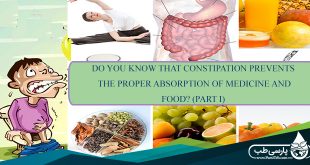What is constipation?
Constipation means different things to different people. For many people, it simply means infrequent stools. For others, however, constipation means hard stools, difficulty passing stools (straining), or a sense of incomplete emptying after a bowel movement. The cause of each of these “types” of constipation probably is different, and the approach to each should be tailored to the specific type of constipation.
Constipation also can alternate with diarrhea. This pattern commonly occurs as part of the irritable bowel syndrome (IBS). At the extreme end of the constipation spectrum is fecal impaction, a condition in which stool hardens in the rectum and prevents the passage of any stool.
The number of bowel movements generally decreases with age. Ninety-five percent of adults have bowel movements between three and 21 times per week, and this would be considered normal. The most common pattern is one bowel movement a day, but this pattern is seen in less than 50% of people. Moreover, most people are irregular and do not have bowel movements every day or the same number of bowel movements each day.
Medically speaking, constipation usually is defined as fewer than three bowel movements per week. Severe constipation is defined as less than one bowel movement per week. There is no medical reason to have a bowel movement every day. Going without a bowel movement for two or three days does not cause physical discomfort, only mental distress for some people. Contrary to popular belief, there is no evidence that “toxins” accumulate when bowel movements are infrequent or that constipation leads to cancer.
It is important to distinguish acute (recent onset) constipation from chronic (long duration) constipation. Acute constipation requires urgent assessment because a serious medical illness may be the underlying cause (for example, tumors of the colon). Constipation also requires an immediate assessment if it is accompanied by worrisome symptoms such as rectal bleeding, abdominal pain and cramps, nausea and vomiting, and involuntary loss of weight. In contrast, the evaluation of chronic constipation may not be urgent, particularly if simple measures bring relief
 Parsi Teb Physical and Mental Health Journal
Parsi Teb Physical and Mental Health Journal 



